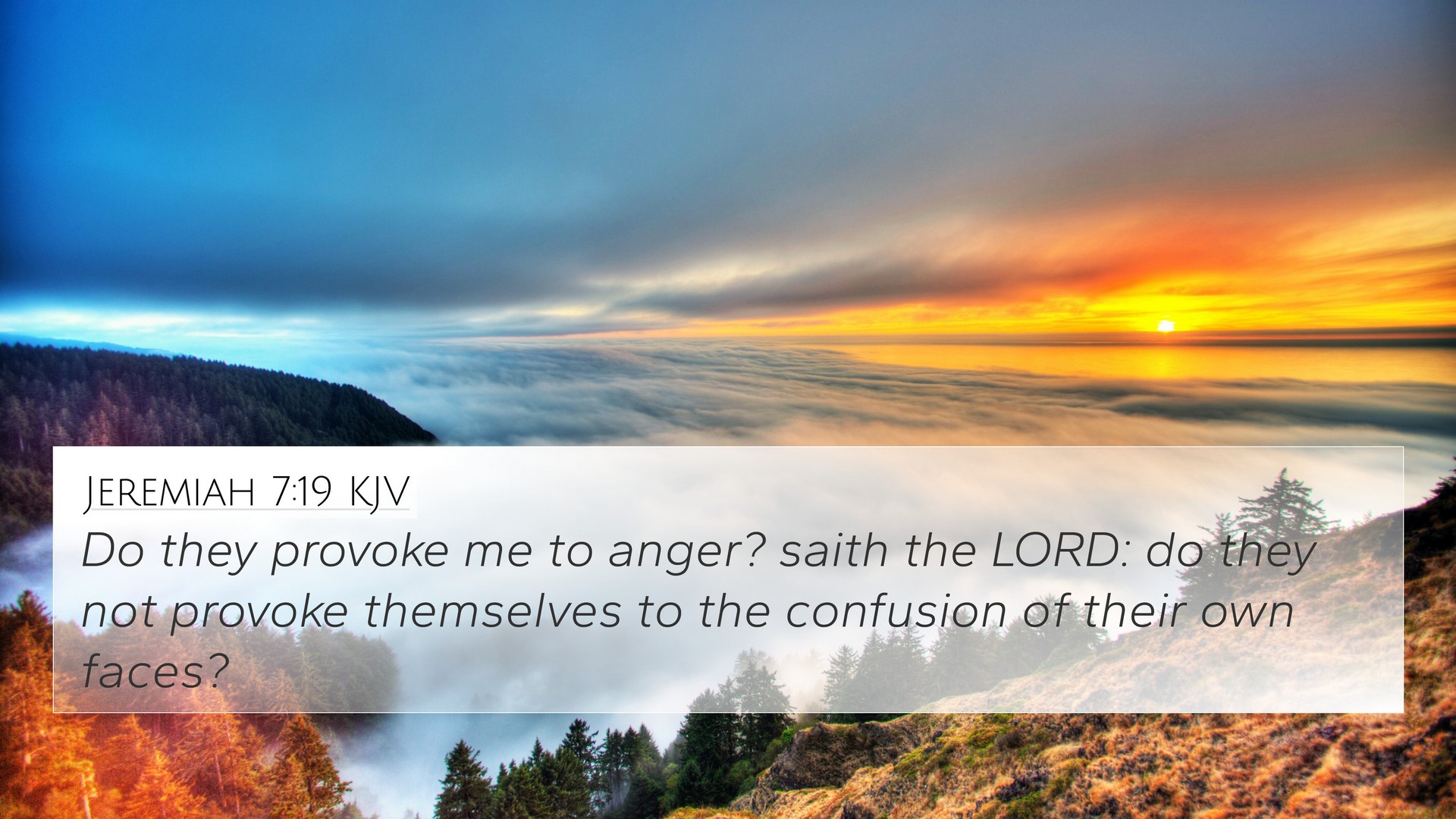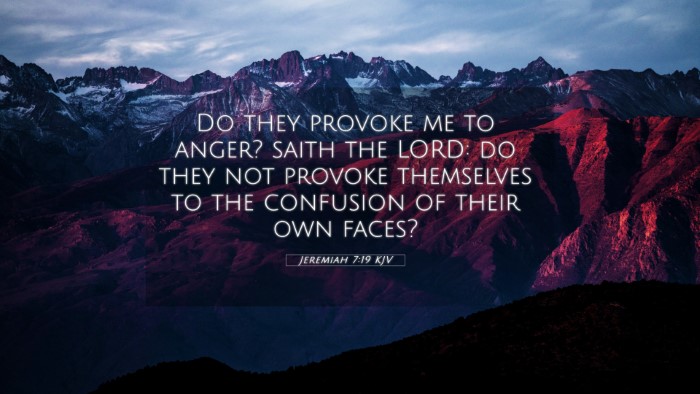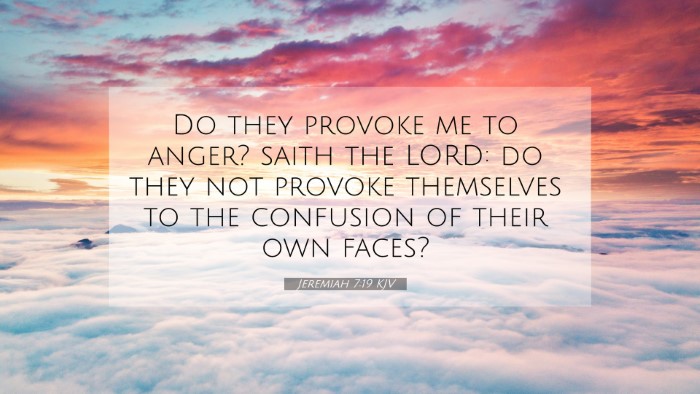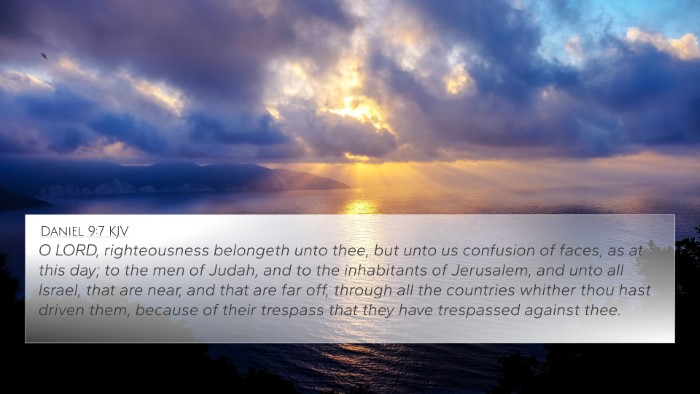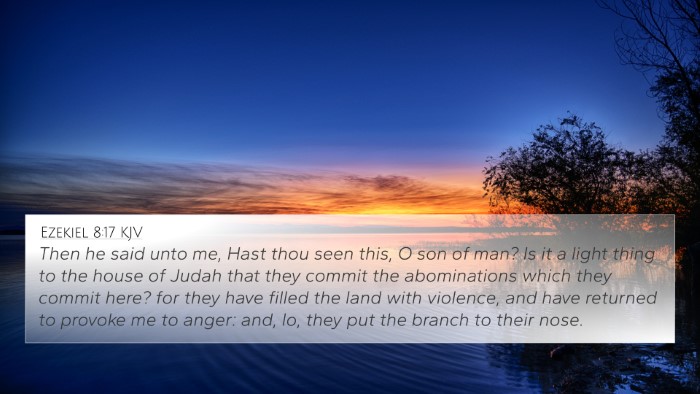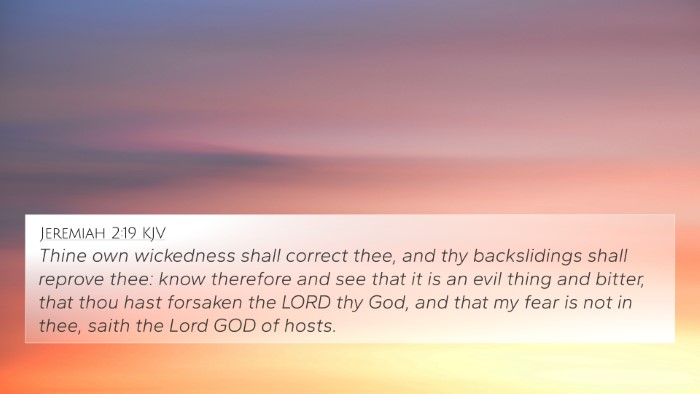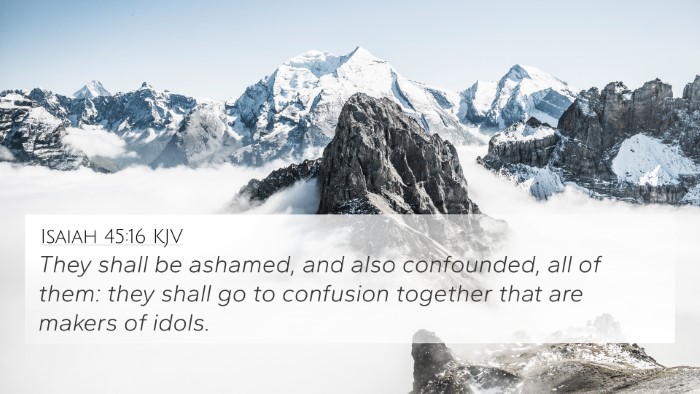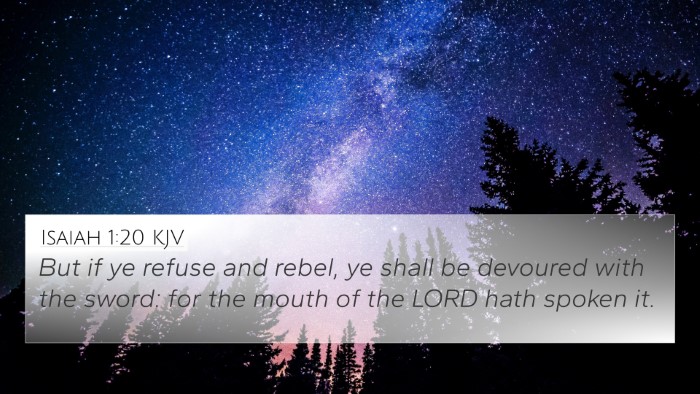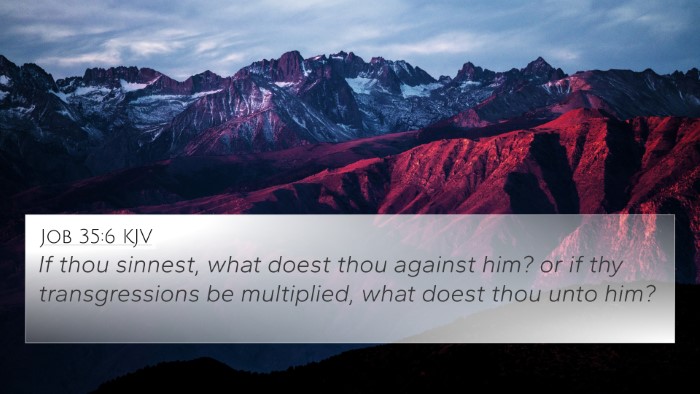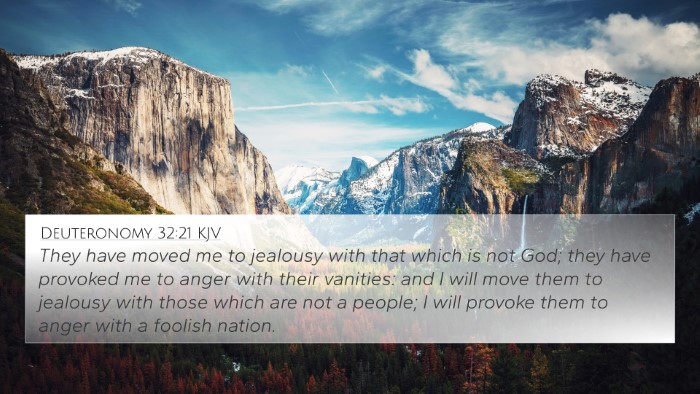Understanding Jeremiah 7:19
Jeremiah 7:19 states:
"Do they provoke me to anger? saith the LORD: do they not provoke themselves to the confusion of their own faces?"
This verse serves as a powerful reminder of the relationship between the people's conduct and God's response. It encapsulates themes of divine justice, human pride, and the consequences of sin. In combining insights from respected public domain commentaries, we can better grasp the depth of its meaning.
Summary of Insights
Matthew Henry's Commentary
Henry emphasizes that this verse illustrates God’s sovereign authority and the folly of human disobedience. He points out that the acts of provocation are not merely against God but lead to one's own ruin. The notion of "confusion of their own faces" indicates a deep shame and internal turmoil as a result of their actions.
Albert Barnes’ Notes
Barnes focuses on the rhetorical nature of God's questioning. It’s indicated that God is not seeking information but rather highlighting the ridiculousness of the people’s rebellion. The phrase reflects a self-destructive behavior in which the people disregard the consequences that their actions will bring upon themselves.
Adam Clarke’s Commentary
Clarke expands on the broader implications of the verse, noting that the provocation of God leads to inevitable judgment and disgrace. He suggests that the verse is not only a warning for the people of Israel but serves as a universal truth about accountability, where all actions have consequential replies from God.
Connecting Biblical Themes
The verse connects deeply with several other scripture passages, illustrating universal biblical themes such as accountability to God and the nature of sin. Here are some significant cross-references:
- Deuteronomy 32:15-21: Highlights Israel’s forsaking of God and subsequent consequences.
- Proverbs 14:12: Points to the idea that there is a way that seems right but leads to death, resonating with self-deception.
- Isaiah 1:18-20: Calls for repentance, showcasing God’s invitation amidst judgment for rebellion.
- Romans 1:21: Discusses how people, knowing God, ignore Him, leading to their own degradation.
- Galatians 6:7: "Be not deceived; God is not mocked: for whatsoever a man soweth, that shall he also reap."
- James 1:14-15: Describes how sin brings forth death, paralleling the self-destructive nature of rebellion against God.
- Hosea 4:6: Talk about the consequences of rejecting knowledge, linking ignorance with the provoking of God's anger.
Thematic Connections
This verse aligns with various thematic connections across the scriptures:
- Divine Accountability: Many verses highlight that individuals are accountable for their rebellion against God.
- The Nature of Sin: A recurring theme demonstrating how sin brings confusion and shame, exemplified in multiple passages.
- Repentance and Restoration: Call to turn back from rebellion and the hopeful invitation of God to return.
- Consequences of Idolatry: The repeated motif of consequences faced due to prioritizing false gods over the true God.
Tools for Cross-Referencing
For anyone studying the scriptures, multiple tools can assist in understanding and exploring cross-references, such as:
- Bible Concordance: A reference tool for finding specific verses and their connections.
- Bible Cross-Reference Guide: A systematic approach to understanding relationships between scriptures.
- Cross-Reference Bible Study: Methods to engage with biblical texts by comparing and connecting verses.
Conclusion
In conclusion, Jeremiah 7:19 stands as a stark reflection on the consequences of sin and the importance of accountability to God. By utilizing cross-referencing tools and actively exploring connections between scriptures, we can deepen our understanding of this verse and its profound implications in the Christian faith.
Final Thoughts
To fully appreciate the complexities and connections of biblical texts, ongoing study through comparative analysis and cross-referencing is essential. This enriches our spiritual journey and reinforces the timeless truths of scriptures.
